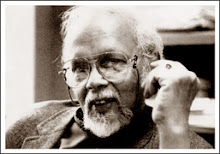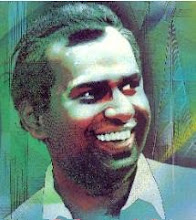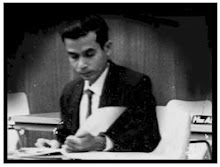Date:05/06/2010
Source: Daily Mirror

Critically acclaimed as a fresh and exciting theatre experience that sets the benchmark for contemporary Sri Lankan theatre, Colombo Colombo: the story of your coffin, is set to entertain audiences again on June 5 and 6 at the Lionel Wendt Theatre from 7.00pm onwards.
Colombo Colombo is a play based on four incidents that take place at four different locations within the city of Colombo.
First staged in August last year, this tragic-comic musical play written and directed by Indika Ferdinando is an experimental theatre endeavour based on a scholastic research paper written by Ferdinando and Saumya Liyanage which argues against the Aristotelian theory of the linear plot construction. 
The play attempts to look critically at some of the influences that transform human relationships and lead them into conflict; the social and political system that constantly infiltrates those human relationships; and the collective indifference with which the public nurtures the system.
Saumya Liyanage, known for his award winning roles on stage and on the big screen is the lead male character in Colombo Colombo. Speaking about the play, Liyanage stated that Colombo Colombo takes a stab at at revolutionising theatre in Sri Lanka.
Speaking to Daily Mirror online, Liyanage said, ‘whether we’ve succeeded in doing this is tough to say, the critics think we have, and I personally think that Ferdi (Ferdinando) has taken a step in the right direction, and I’m proud to have walked with him through that journey.”
Colombo Colombo was staged at the South Asian Women’s Theatre Festival held in New Delhi and Mubai in February this year. Talking about the Indian experience, Liyanage said, “India was special. It was my first time performing to an international audience. I think I can safely say that being a part of this play feels like the turning point of my career.”
 Getting back to the upcoming performance, Liyanage said, “It was a challenge for all of us, I play the old man and narrator, Anasuya (the lead female) plays four characters. All the actors play the guitar, sing, dance and play multiple roles all on one stage, in one play. It’s just us 8 actors and our guitars.”
Getting back to the upcoming performance, Liyanage said, “It was a challenge for all of us, I play the old man and narrator, Anasuya (the lead female) plays four characters. All the actors play the guitar, sing, dance and play multiple roles all on one stage, in one play. It’s just us 8 actors and our guitars.”
This being the final performance before he leaves to follow a PhD in Australia, Liyanage stated: “When you stagnate it kills your soul, drains it away bit by bit and I don’t like that feeling. So I’ve got to go for now but I will miss this country because I’ll miss my people.”
Meanwhile, Indika Ferdinando, lecturer at the University of Visual and Performing Arts in Colombo and recipient of several state awards for best playwright and director, says that future works in the pipeline are set to follow a similar experimental path. Commenting on his style of work, Ferdinando said: “Exploring the unknown is an essential part of my scholastic research and my theatre practice”.
He also added that “Over the past decade there has been very little experimental work done in the local theatre. By conforming to dialog plays that hold up a mirror to life, we forget the potential of theatre as a unique and limitless medium. People come to the theatre hoping to to be excited. When they don’t find that excitement, they go in search of it in other media. Can we blame them? I say we move beyond convention. The time has come to reinvent theatre in Sri Lanka. ” (KA)




































No comments:
Post a Comment